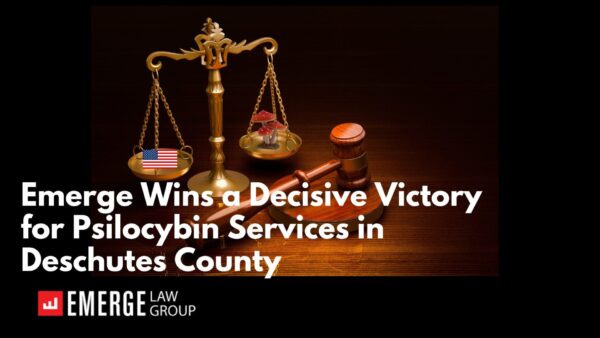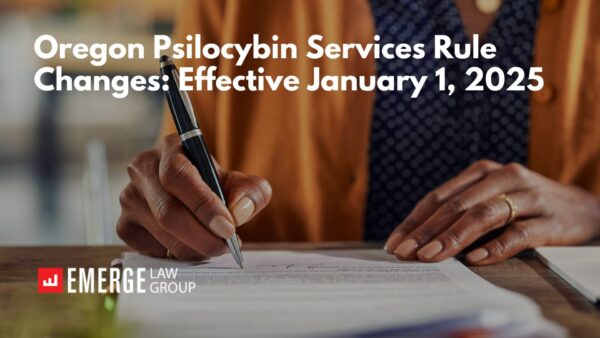The Oregon Health Authority (OHA) released Information Bulletin 2016-05 in an attempt to clarify many questions surrounding the legality of marijuana extraction under the Oregon Medical Marijuana Program (OMMP).
Below are commonly asked questions we have been receiving and our responses based on the OHA’s most recent bulletin. This information is general in nature, and subject to change. The Oregon Health Authority, Governor’s office, Attorney General’s office and state legislators are currently evaluating the situation.
If you have any questions about your specific facts and circumstances, we recommend contacting an attorney.
1. Is processing marijuana extracts illegal?
If you are not registered with the OHA, the state considers the processing of marijuana extracts to be a Class B Felony. All marijuana extraction activities should cease immediately.
2. When can a processor become registered or licensed?
The OHA will begin accepting processor registrations on April 1, 2016. It is currently unknown how long it will take the OHA to process applications for registration.
The Oregon Liquor Control Commission (OLCC) began accepting applications on January 4, 2016. Processor licenses are expected to be issued in third quarter 2016. Any processors who have submitted an OLCC processor application are not permitted to make extracts until a license is issued.
3. What is the difference between a marijuana extract v. concentrate?
Extracts are generally considered more dangerous to create than concentrates. Although extracts are often thought of as items made with high heat or high pressure, that is not always the case. The full definitions of extracts and concentrates are below. See also ORS 475B.015 and OAR 333-008-0010.
Extracts
“Cannabinoid extract” means a substance obtained by separating cannabinoids from marijuana by:
(a) A chemical extraction process using a hydrocarbon-based solvent, such as butane, hexane or propane; or
(b) A chemical extraction process using the hydrocarbon-based solvent carbon dioxide, if the process uses high heat or pressure.
Common Examples:
– CO2 oil (made with high heat or pressure)
– All BHO oil
Concentrates
“Cannabinoid concentrate” means a substance obtained by separating cannabinoids from marijuana by:
(a) A mechanical extraction process;
(b) A chemical extraction process using a nonhydrocarbon-based solvent, such as vegetable glycerin, vegetable oils, animal fats, isopropyl alcohol or ethanol;
(c) A chemical extraction process using the hydrocarbon-based solvent carbon dioxide, provided that the process does not involve the use of high heat or pressure; or
(d) Any other process authorized in these rules.
Common Examples:
– Bubble Hash
– Rosin (if solventless or using nonhydrocarbon-based solvents)
– RSO (if not made with butane, hexane, or propane)
Whether a product is an extract or concentrate depends entirely on the method of separating cannabinoids from marijuana. If you have any questions about how processing methods categorizes a product, you should consult with an attorney to make a determination.
4. Can dispensaries intake or sell marijuana extracts?
Dispensaries may not accept transfers of marijuana extracts from unregistered processors or transfers of edibles containing extracts made by unregistered processors. Dispensaries may currently only sell sell extracts or edibles containing extracts that were in stock as of March 1, 2016.
Dispensaries may continue to accept concentrates from unregistered processors and sell concentrates to OMMP patients. On and after October 1, 2016, dispensaries may only accept concentrates from registered processors.
5. Is making and transferring edibles allowed?
Making edibles with concentrates is allowed and such edibles may be transferred by the edible maker to patients and dispensaries.
Edibles infused with an extract made by an unregistered extractor may only be sold by the edible maker to OMMP patients.
6. Do I need to destroy marijuana extracts in my possession?
Currently, only the unlicensed manufacturing of marijuana extracts is considered illegal. As long as you are within appropriate possession limits under the OMMP, you do not need to destroy extracts on hand.
7. Will extracts, or edibles infused with extracts, that were extracted before March 1, 2016 be able to be transferred to dispensaries after the processor registers with the OHA?
It is currently unclear whether extracts created prior to March 1, 2016 will be allowed back into the OMMP system if/when the maker of the extract subsequently registers with the OHA. We are hopeful that such products will be able to resume moving through the OMMP system in a responsible and safe manner.





